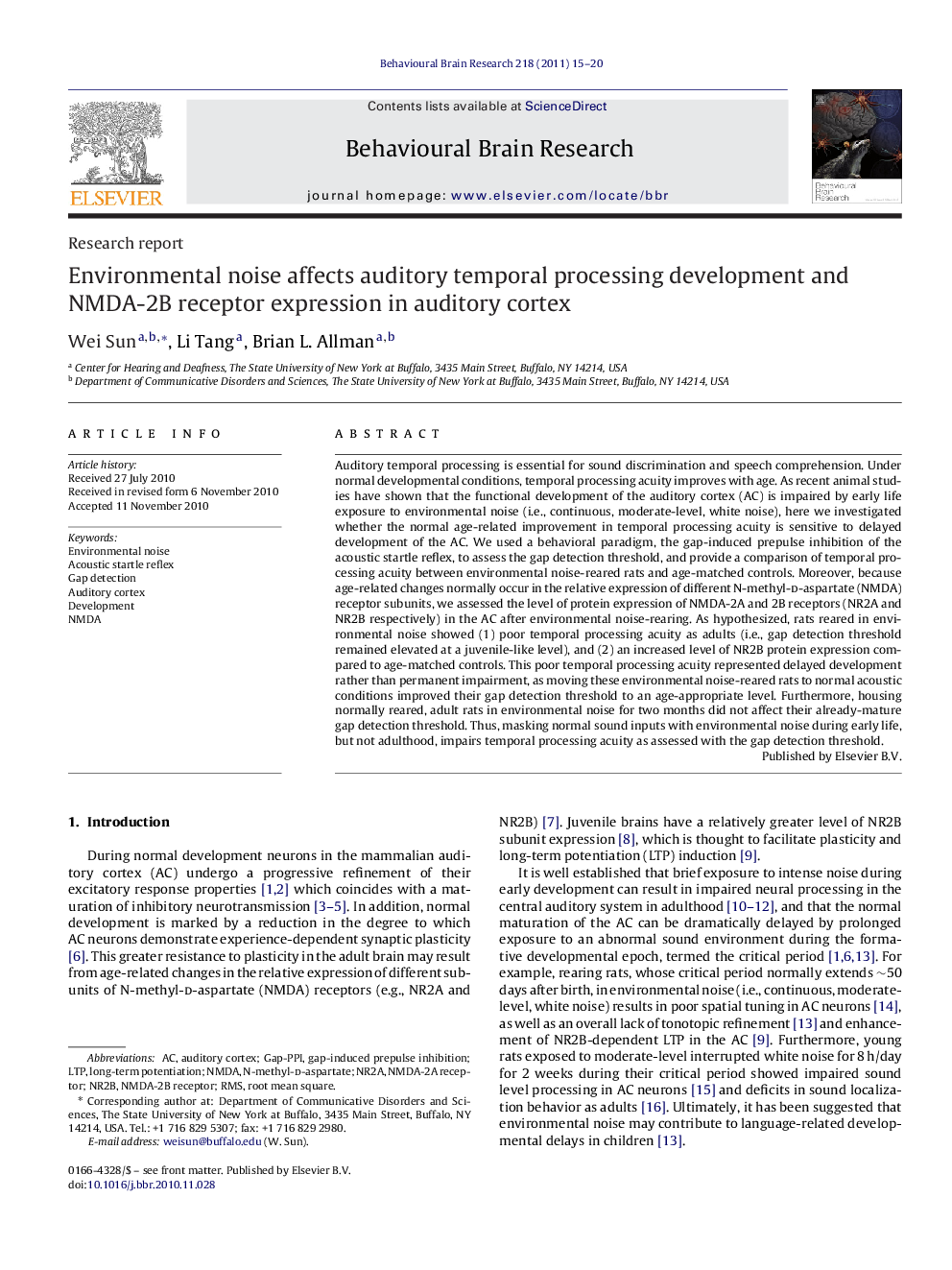| Article ID | Journal | Published Year | Pages | File Type |
|---|---|---|---|---|
| 6259879 | Behavioural Brain Research | 2011 | 6 Pages |
Auditory temporal processing is essential for sound discrimination and speech comprehension. Under normal developmental conditions, temporal processing acuity improves with age. As recent animal studies have shown that the functional development of the auditory cortex (AC) is impaired by early life exposure to environmental noise (i.e., continuous, moderate-level, white noise), here we investigated whether the normal age-related improvement in temporal processing acuity is sensitive to delayed development of the AC. We used a behavioral paradigm, the gap-induced prepulse inhibition of the acoustic startle reflex, to assess the gap detection threshold, and provide a comparison of temporal processing acuity between environmental noise-reared rats and age-matched controls. Moreover, because age-related changes normally occur in the relative expression of different N-methyl-d-aspartate (NMDA) receptor subunits, we assessed the level of protein expression of NMDA-2A and 2B receptors (NR2A and NR2B respectively) in the AC after environmental noise-rearing. As hypothesized, rats reared in environmental noise showed (1) poor temporal processing acuity as adults (i.e., gap detection threshold remained elevated at a juvenile-like level), and (2) an increased level of NR2B protein expression compared to age-matched controls. This poor temporal processing acuity represented delayed development rather than permanent impairment, as moving these environmental noise-reared rats to normal acoustic conditions improved their gap detection threshold to an age-appropriate level. Furthermore, housing normally reared, adult rats in environmental noise for two months did not affect their already-mature gap detection threshold. Thus, masking normal sound inputs with environmental noise during early life, but not adulthood, impairs temporal processing acuity as assessed with the gap detection threshold.
Research highlightsⶠEnvironmental noise can delay temporal processing acuity development. ⶠEnvironmental noise increased NMDA-R2B protein expression in the auditory cortex. ⶠNoise affects auditory cortex maturation and thus affects auditory temporal processing. ⶠNoise shows no effect on temporal processing in adult rats. ⶠThere exists a critical period for the functional development of temporal processing acuity.
